From September 5, 1979, through November 28, 1984, in his Wednesday general audiences, Pope John Paul II spoke about the unique and holy love between a man and a woman. This collection of 129 papal addresses was later compiled into the cohesive document we know today as the Theology of the Body.
Here we’ve compiled the answers to FAQ on the Theology of the Body. If you want to learn more, check out our article series on the Theology of the Body.
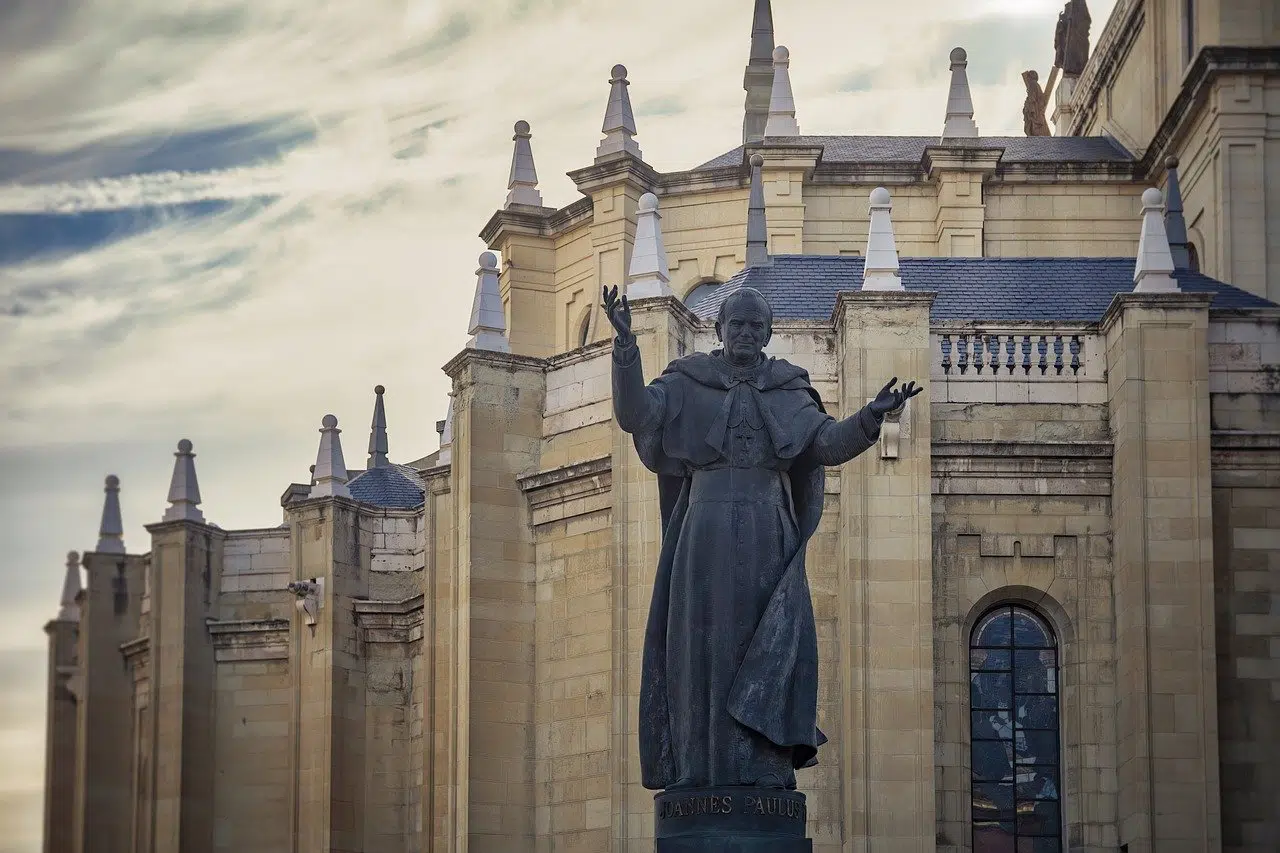
What’s covered in the Theology of the Body?
The 129 papal addresses can be divided into six parts, each with different themes. They include teachings on many topics, including:
- marriage as a sacrament
- adultery
- celibacy
- contraception
- the love of Christ for the Church and His children
- motherhood
- the difference between love and lust
- the gift of the human body
- the body-soul union
For more information, take a look at our series on Theology of the Body.
Why did the Pope use the word “theology” when speaking of the body?
Theology means a study of God. John Paul II taught that God created our human bodies as a “sign” of His own divine mystery. Genesis 1:27 teaches us that “God created mankind in His image; in the image of God He created them; male and female He created them.”
Out of pure and perfect love, God created us to know, love, and serve Him. He wanted us to understand His love, so He gave us something tangible. He gave us the opposite sex. According to Crossroads Initiative, an organization whose mission it is to bring people closer to Christ:
The Bible uses spousal love more than any other image to help us understand God’s eternal plan for humanity. [God] wants to “marry” us (see Hos 2:19) to live with us in an “eternal exchange of love.” And He wanted this great “marital plan” to be so plain to us, so obvious to us that He impressed an image of it in our very being by creating us male and female and calling us to communion in “one flesh.:
That is how our first parents—Adam and Eve—lived. They were in complete union with God. They lived in peace. They did not fear their naked bodies. They felt no shame. And they understood the complementarity between them.
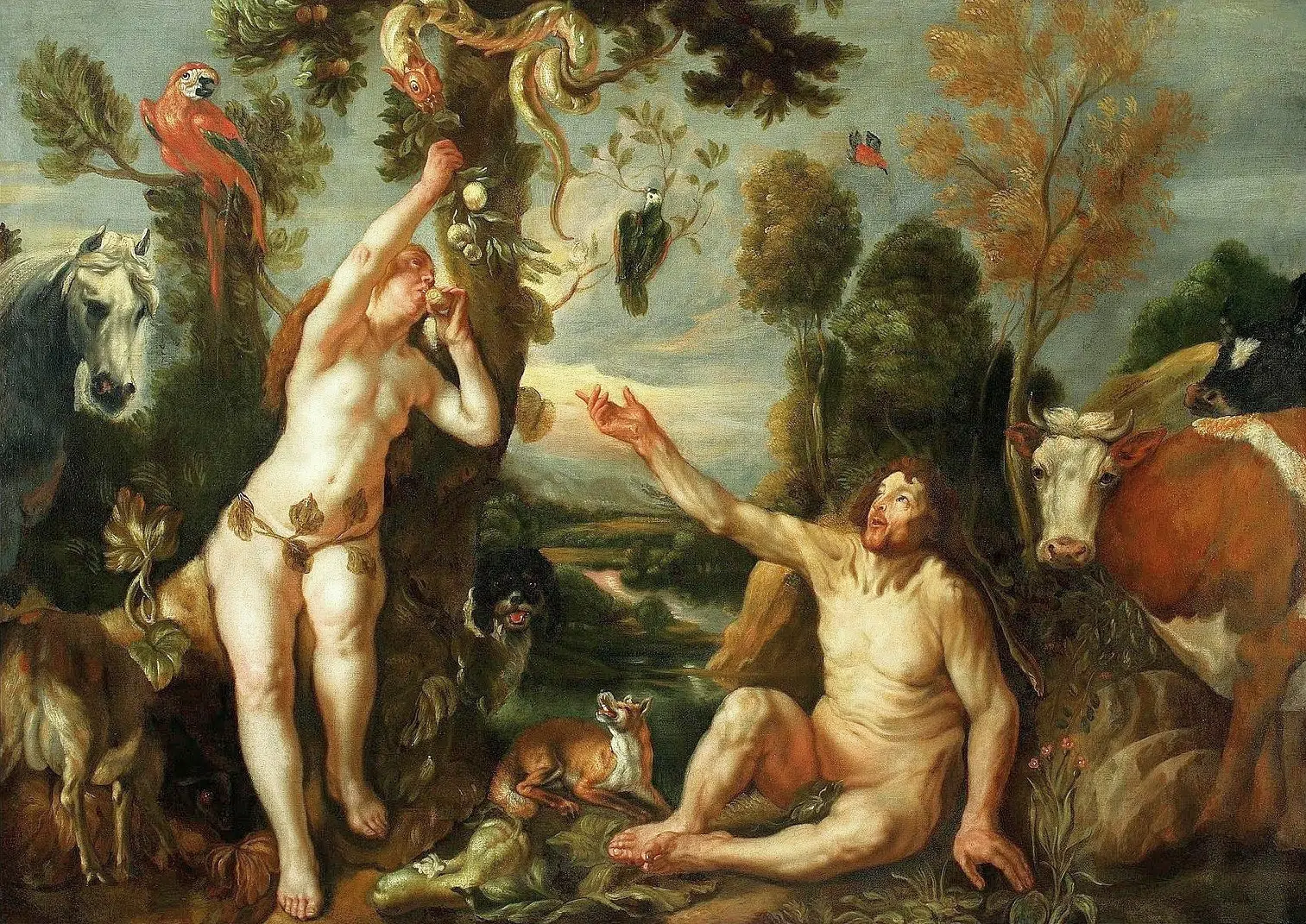
Adam and Eve (Jacob Jordaens ~ PD-1996)
But then they sinned. They listened to the lies of the devil, and suddenly they saw themselves in a different way. They became ashamed of their nakedness and sought to cover themselves, for they now felt vulnerable. Their sexuality changed into something to hide rather than something to cherish and celebrate. Adam and Eve became broken.
As a result, we live in a broken world devastated by original sin.
But through the Theology of the Body, John Paul II teaches us that we must not lose hope. He wants us to study and understand God’s love so that we can come to know the love He intended us to have for our spouses. And as we learn to love here on earth, we will find ourselves growing closer to God as we come to a fuller understanding of His love.
How does TOB affect my life?
Crossroads Initiative explains that, through TOB, John Paul II gives us an in-depth look into scripture as he attempts to answer these questions: 1) “[What does] it mean to be human?” and 2) “How do I live my life in a way that brings true happiness and fulfillment?” For the Theology of the Body is more than just teachings on sexuality and marriage. It is the “rediscovery of the meaning of the whole of existence, the meaning of life.”
John Paul himself addresses this:
[Man] is called precisely to that supreme value that is love. He is called as a person in the truth of his humanity, therefore also in the truth of his masculinity or femininity, in the truth of his body. He is called in that truth which has been his heritage from the beginning, the heritage of his heart, which is deeper than the sinfulness inherited, deeper than lust in its three forms. The words of Christ, set in the whole reality of creation and redemption, reactivate that deeper heritage and give it real power in man’s life.
The Theology of the Body helps us envision God’s love for us—a love that leads to a deep awareness not only of our dignity as human beings but also of our purpose in life. When we see and understand our purpose and how we must love ourselves and others, we grow not only in love for Him, but we are able to experience the joy and wonder that comes from seeing ourselves and others as immense gifts.
Why does TOB refer to sexuality as a gift?
Pope John Paul II explained that because we are made in the image and likeness of God, because God is love, and because He made us on purpose and out of love, what we do with our body matters, especially when it comes to our sexuality.
God gifted us with our sexual desire as a way to love as He loves. He wants us to understand that love does not use people for self-gratification. Love is not selfish. Love cherishes the other person. And love only thrives when it is given selflessly.
If we live according to these truths, we will fulfill the meaning of life that God intended when He created us.
But do we know what that meaning is? Christ revealed it when He taught that we must love one another as He loved us.
And we know how much Christ loved us. At the Last Supper, He told His apostles: “This is my body, which will be given for you” (Luke 22:19). He then willingly gave His life for us, allowing His body to be battered, bruised, and broken on the cross.
What are the “marks of love”?
According to the Church, there are four marks, or characteristics, of a love that’s considered self-donative, or self-giving. These marks are free, total, fruitful, and faithful.
God wants us to love our spouses in this way. We give ourselves freely, without coercion and without guilt. We give ourselves totally; we don’t hold back any part of us. We remain open to children. And we promise to be monogamous.
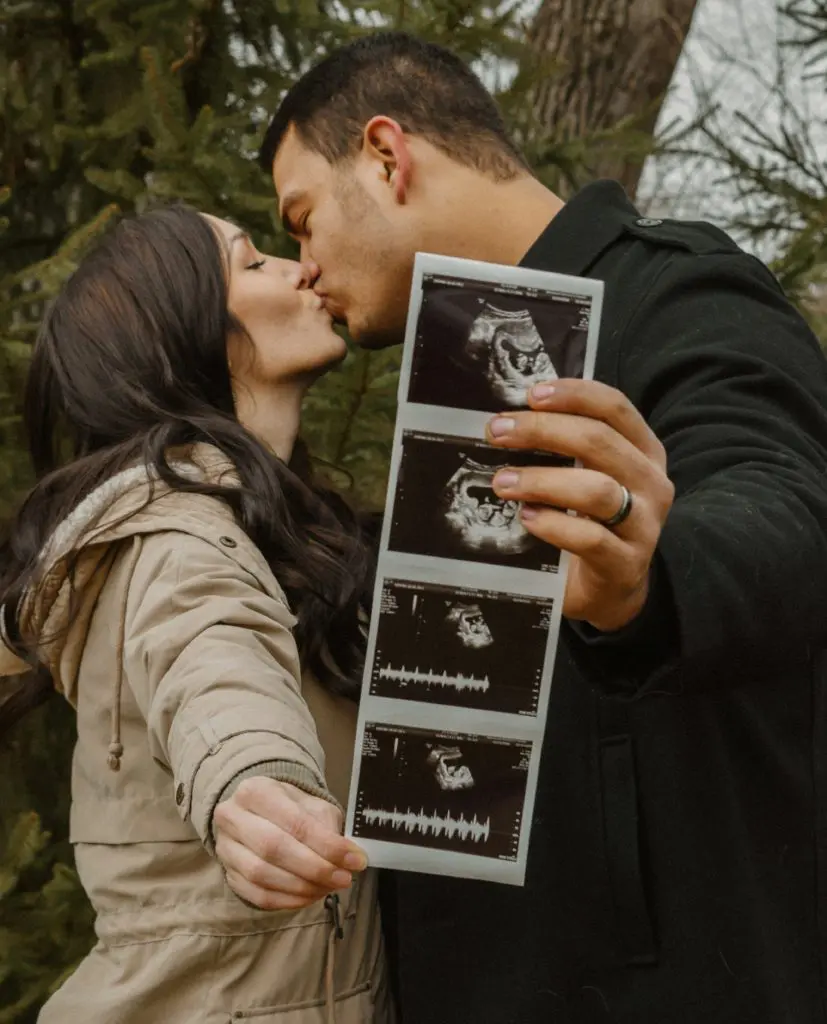
Photo by Rose Elena via Unsplash
According to John Paul II:
The human body, with its sex, and its masculinity and femininity seen in the very mystery of creation, is not only a source of fruitfulness and procreation, as in the whole natural order. It includes right from the beginning the nuptial attribute, that is, the capacity of expressing love, that love in which the person becomes a gift and—by means of this gift—fulfills the meaning of his being and existence.
When we allow our sexuality to encompass those four marks, we give our spouse a complete and total gift of ourselves.
How does TOB lead to the happiness God wants for us?
The idea of gifting ourselves to others is often counterintuitive to today’s culture that claims that people can do whatever they want with their bodies and that they should do whatever makes them feel good. The pope explains that people will never be truly happy with this kind of sexuality, as they are throwing away the great gift of self-donative love.
They may be satisfied or happy for a day or a week or even a month. But the lasting happiness that God wants for us will never be found in a relationship where people use each other.
Why is TOB important for teens?
TOB is something incredibly important not just for adults to understand, but teens as well.
Teens and young people are growing up in a permissive world where gender is considered “fluid,” promiscuity is encouraged and even congratulated, organizations like Planned Parenthood teach both hedonism and Humanist “religion,” and those who practice chastity are often scoffed at.
We see every day the hand of the devil in these behaviors. He entices us with sin and tells us that sexual promiscuity is hurting no one, so it’s okay to indulge. This skewed view of sexuality keeps kids from understanding the true gift of themselves. It prevents them from seeing their God-given dignity.
That is why they need the guidance of the Theology of the Body. Through this program they learn that, in the context of self-giving and marital love, sex is a beautiful and wonderful act. They are taught to look forward to sharing that union with someone who cares so much for them that they want to spend the rest of their lives together. The Theology of the Body can be a teen’s roadmap to authentic happiness and a real understanding of donative love.
TOB also teaches teens about other modern-day problems
As they study TOB, teens also learn the inherent dangers of pornography and how porn turns people into commodities. In pornographic movies and magazines, people are essentially bought and sold for pleasure. They’re treated as toys rather than as gifts. Instead of giving themselves freely, totally, faithfully, and fruitfully, the patrons of pornography selfishly take from others.
In addition, when teens truly understand their inherent worth and the gift of self, they also come to appreciate why the Church teaches that contraception is morally illicit. They realize that they can never be truly happy if they are holding back a part of themselves.
How do I teach TOB to my young kids?
The actual Theology of the Body addresses from Pope John Paul II will be difficult for children and maybe even for teens to read. But the concepts are still very important. That’s why we recommend several steps to teaching about people’s value, about the beauty of the body, about the sanctity of every person, and about sexuality.
The Pauline store has a lot of great options for picture books that can be read with small children and kids in elementary school. These books will help give them the foundation you will build upon as they grow.
How do I teach TOB to my teens?
As children mature into teens, you can begin to talk in more detail about some of the concepts in TOB. Brian Butler and Jason Evert created a book and workbook set for middle schoolers called Theology of the Body for Teens, Middle School Edition: Discovering God’s Plan for Love and Life. This age-appropriate book can be used at home, in youth group settings, or in religion classes. Butler and Evert also created a version for high schoolers that can be used in those settings as well.
TOBET, the Theology of the Body Evangelization Team, created a program for grades K-8. This program, called The Body Matters, is for homes, religious ed programs, and Catholic schools. Based on TOB, this curriculum “will restore the dignity of the human person and form families and their children in the truths of the Catholic faith, precisely through a deeper understanding of the human BODY.”
Finally, Ascension offers an online course with workbooks, discussion points, and quizzes that the parent and teen can do together.
How do I teach TOB to young adults?
The Fellowship of Catholic University Students has a site with excellent materials for young people. Most are downloadable and can be used with college-aged students and older. These free resources are a great way to begin discussions with people who are struggling to understand why the Church teaches chastity.
Organizations such as the Theology of the Body Institute offer classes as well.
Many parishes have access to TOB programs or programs that are already approved. Check with your parish priest for his recommendations.
Final Thoughts
The Theology of the Body contains immense wisdom from one of the greatest pontiffs ever to sit in the chair of St. Peter. Through his words and through his insight, we come to understand God’s plan for our bodies, for our sexuality, for a healthy marriage, and for growing in our relationship with Him.
In these 300+ pages of text, we see the immense love that God has for His people. We come to truly understand that we are gifts.
When we begin to see ourselves as gifts, we mend the brokenness of Adam and Eve. We help restore that relationship with God that had been lost. We realize our inner integrity. And we rejoice in the fact that we were made for love.
And that is the meaning of life that God wants to share with us.
Related Content
Susan Ciancio has a BA in psychology and a BA in sociology from the University of Notre Dame, with an MA in liberal studies from Indiana University. Since 2003, she has worked as a professional editor and writer, editing both fiction and nonfiction books, magazine articles, blogs, educational lessons, professional materials, and website content. Fourteen of those years have been in the pro-life sector. Currently Susan writes weekly for HLI, edits for American Life League, and is the editor of its Celebrate Life Magazine. She also serves as executive editor for the Culture of Life Studies Program, an educational nonprofit program for k-12 students.


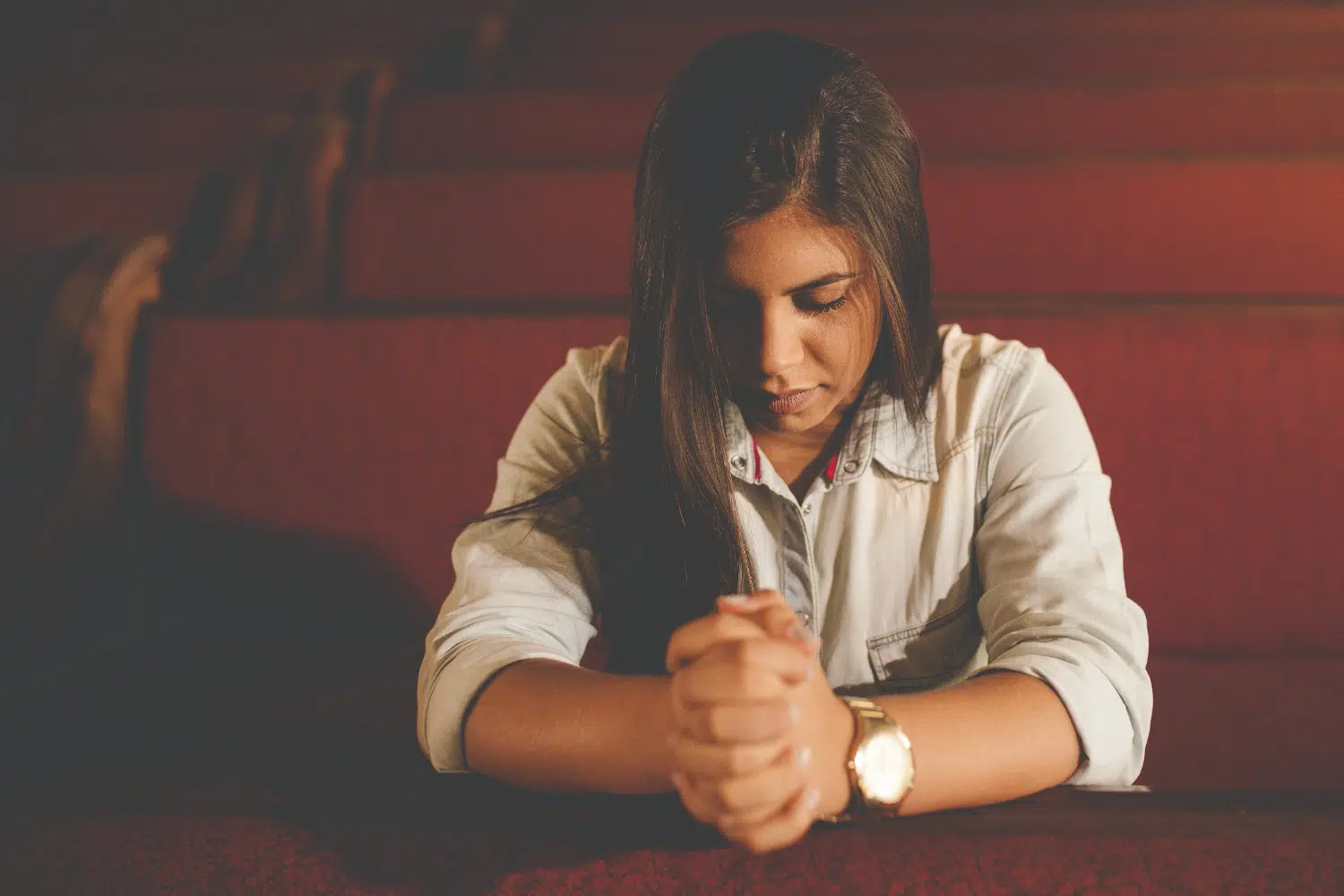
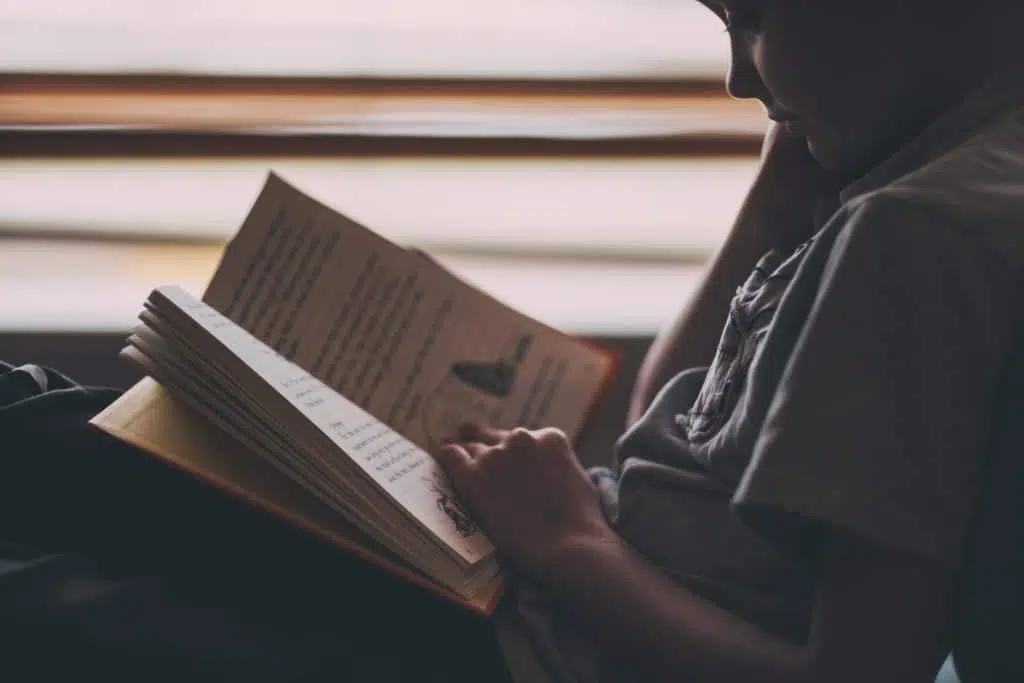
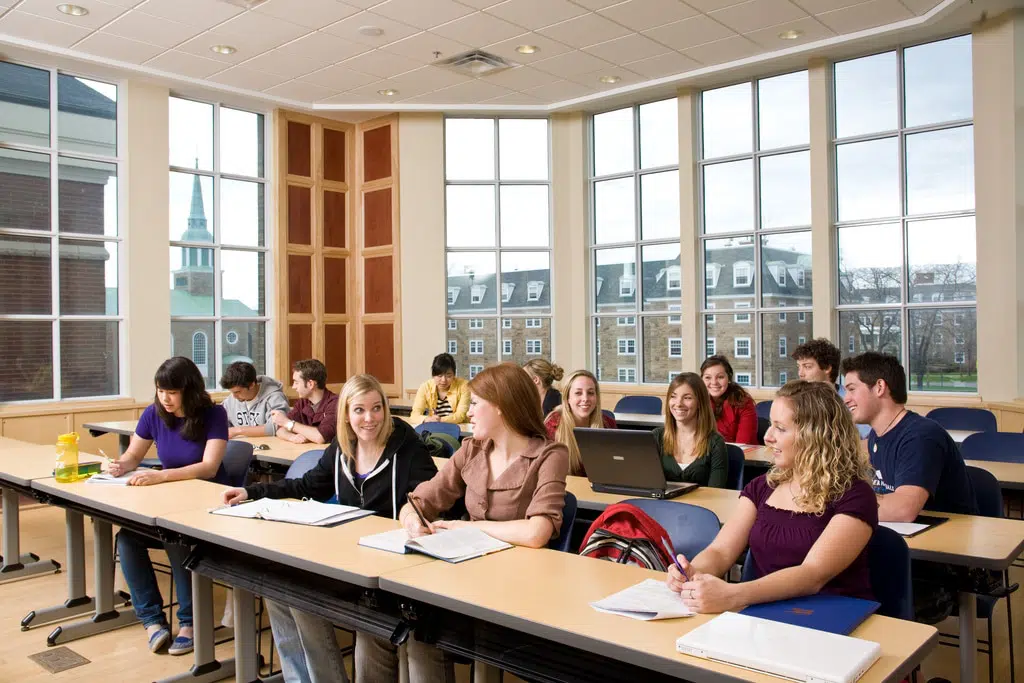



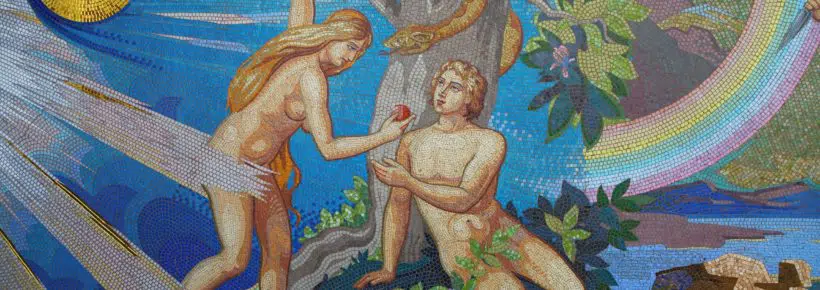

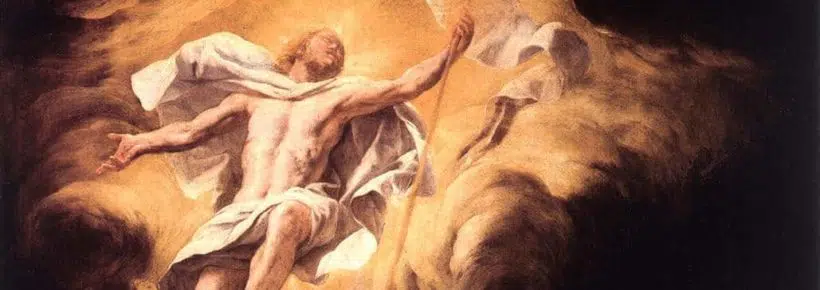
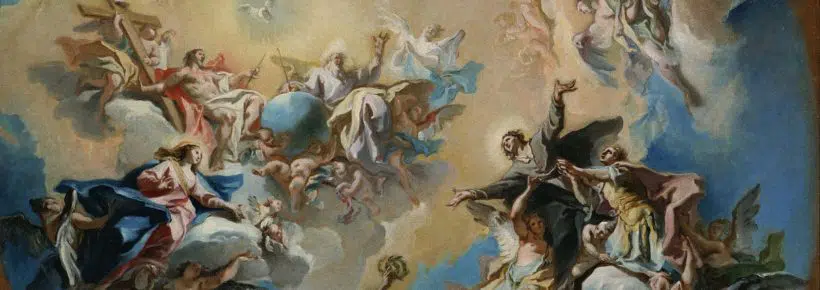

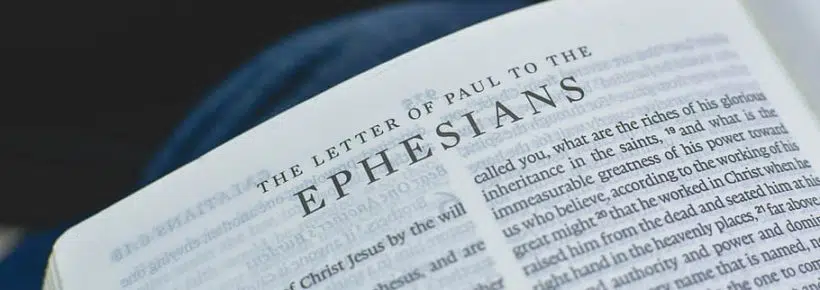


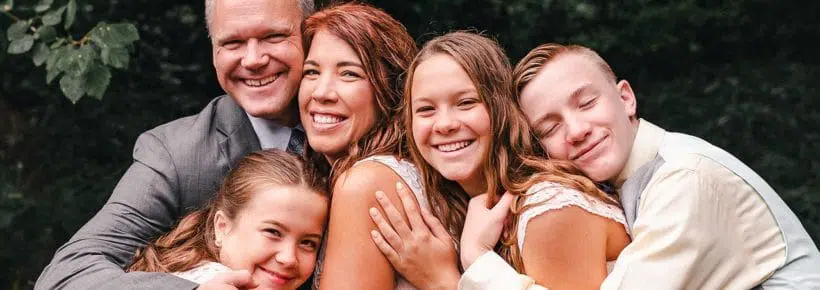
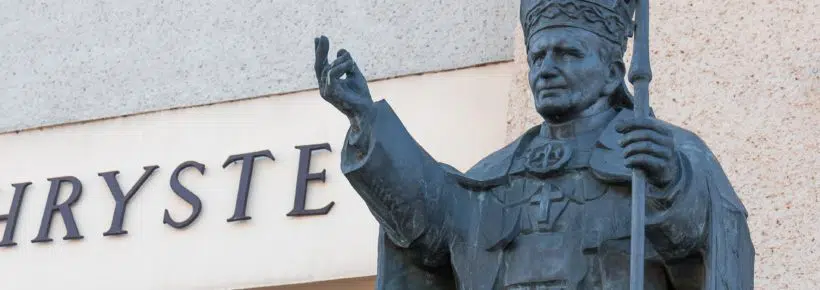

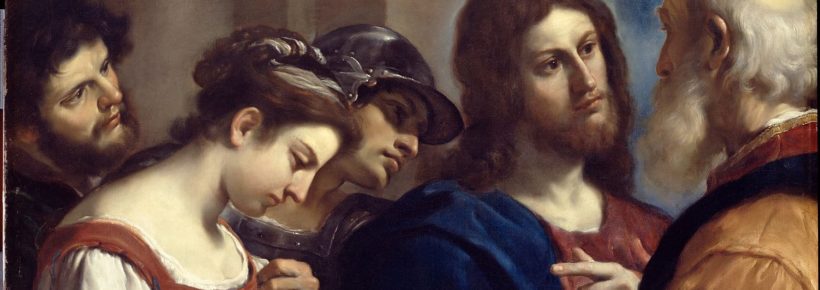
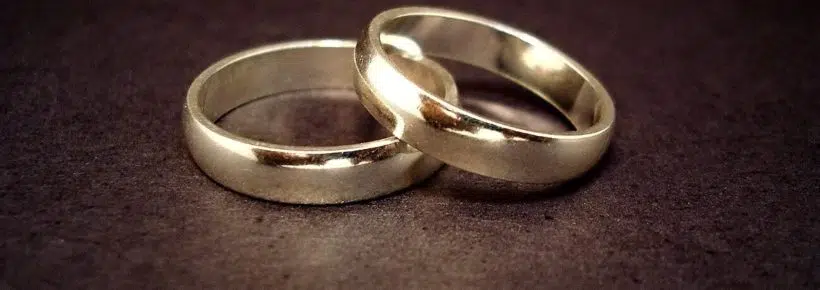
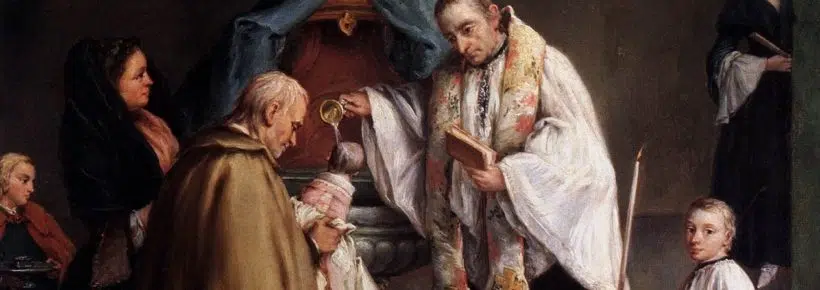
Great article. I never knew any of this and I’m a cradle Catholic! Why aren’t they teaching this in school? Why aren’t they talking about this in church? Where are the priests who should stand up for our faith?
Wow! Love this article! I teach religious ed and can’t wait to look into these resources. Thanks!!!